
Kevin Bacon: the 10 records that changed my life
“I’ve often said that my heroes played guitars," says Kevin Bacon, "and in a way, it all started at home." The celebrated actor, currently starring in the Fox drama series The Following, who has released seven albums with his real-life sibling and Bacon Brothers partner, Michael, recalls his childhood in Philadelphia, watching Michael and his older sister Hilda performing in a jug band in the family basement.
"Michael played guitar, and my sister played cello, oboe, guitar, banjo, piano – pretty much anything," he remembers. "They sounded great. Seeing them make music in front of me, the fact that they played instruments and were in a band, it really got to me. It seemed really cool."
Another important development in Bacon's musical journey occurred when he was in the sixth grade and befriended a new kid in the neighborhood, Harry. "His family was from a long line of restaurant and club owners," says Bacon, "and they opened a seminal rock club in Philly called The Electric Factory. We were just tiny kids, but we’d go and see these concerts – Janis Joplin and all the great acts. It was incredible. Eventually, they moved into doing arenas and stadiums, so we'd go to every single show at the Spectrum. Seeing all of those bands had a huge impact on me."
These days, when he's not recording or touring with his brother (an award-winning film and TV composer in his own right), Bacon merges music with his regular day job, sometimes compiling playlists as part of his research for internalizing different characters. "When you take on a role, you ask yourself a lot of questions," he explains. "'What’s this guy's favorite food or favorite color? Who were his parents? Does he believe in God?' It’s like writing a biography. And one of those questions is, 'What kind of music does he like?' It's really helpful."
Bacon admits that he can sometimes get carried away: Recently, his wife, actress Kyra Sedgwick, asked him to put together one of his famous playlists for a role that she was preparing for. Of the four hours of music he ultimately assembled, Bacon laughs and says, "It was kind of long."
In compiling a list of the 10 records that changed his life, Bacon reflected on what he misses most about the vinyl experience of his youth – namely, the vinyl experience of his youth. “I love everything about albums," he says. "It was one thing when the records shrunk down to CDs, because at least you still got something to look at. You could hold it in your hands. Now it’s hard to even find digital booklets – they don’t seem to be around. That's kind of sad. Albums have always been pretty special to me.”
Special thanks to Marcos Siega.
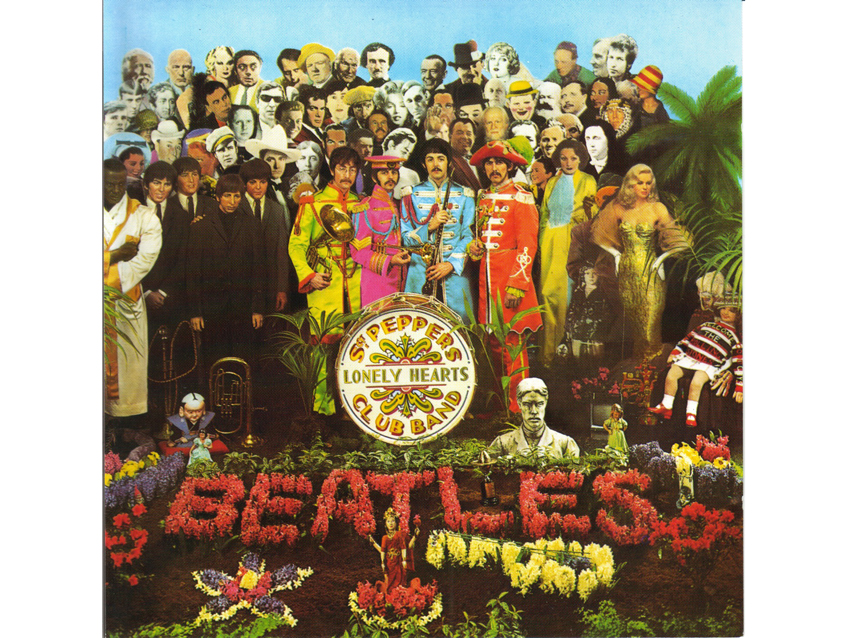
The Beatles - Sgt. Pepper's Lonely Hearts Club Band (1967)
“When I was a little kid, I had an AM radio, and I listened to soul music on WDAS and pop-rock on WFIL – this was before FM rock. I had a 45 record player, too, and I was always trying to score a single or even just borrow one from somebody. Then Sgt. Pepper came out, and it seemed like it was this new thing.
“When my father came home from work, he'd go into the bedroom to change his clothes and get ready for bed. He’d turn his pants inside out and all of this change would fall out of his pockets and hit the floor. For some reason, he'd always forget to pick it up, so what I would do is, I'd go into my parents' bedroom and I would steal it. [Laughs] Eventually, I collected enough to buy Sgt. Pepper. It was the first album I ever bought. I might have even split it with my friend Harry – I’m not sure.
“To come home and hold it and look at it… There was the music, which was mind-blowing, of course, but it was also this thing. It had stuff that you’d cut out, and there was the cover – you could stare at it for hours. There were records before, but this was a record. This was different.
“It was crazy, it was fresh – sonically, it was so advanced – but it was also very accessible, even for a kid. It was just wonderful.”
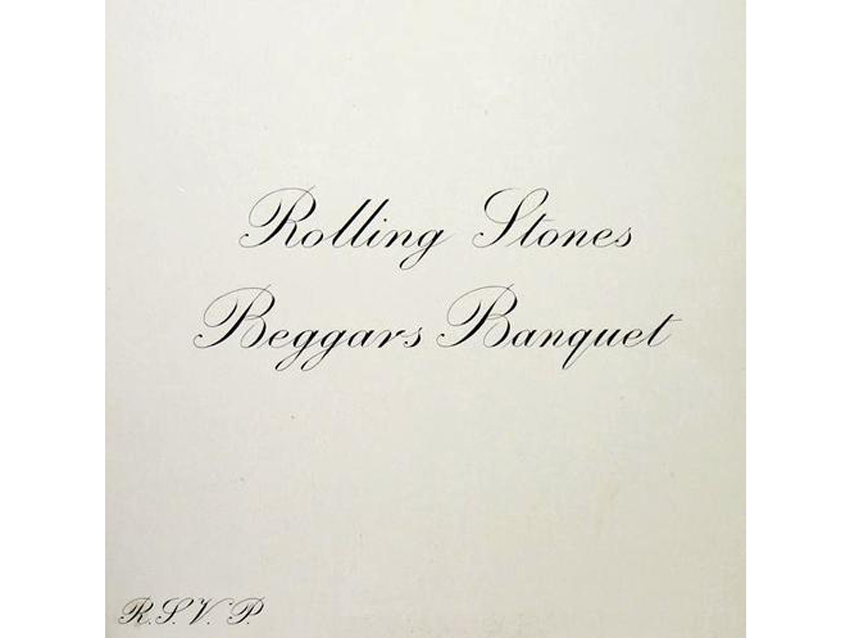
The Rolling Stones - Beggar's Banquet (1968)
“There was a bit of a safety thing to The Beatles. Their songs were upbeat, and there was a sense of humor to them; the music could be cool, edgy, sad and melodically challenging, but there was always something positive about it.
“And here comes Beggar’s Banquet, and it was so much darker, edgier, angrier. For the first time, I think I got the idea of what sexually charged rock ‘n’ roll was all about. That’s pretty powerful stuff, when you’re suddenly feeling all of these new things. It kind of makes you go, ‘Whoa!’” [Laughs]
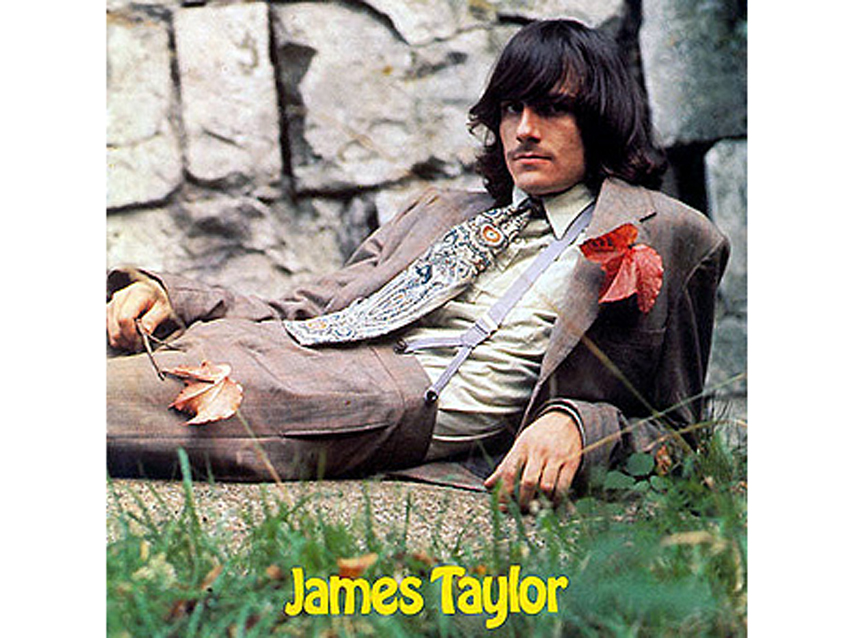
James Taylor - James Taylor (1969)
“Up to this point, I knew my brother as a folk singer, but that genre wasn't so big for me – I was more into soul and rock. But then the singer-songwriter thing kind of opened up, and I began to really appreciate it.
“This is an important record to me – and I love all of James’ work; I’ve been a huge fan for so many years – because when I first met my wife, when I was courting her – now, that’s a funny word [laughs] – one of the first things we connected on was James Taylor, particularly his early work. We would play this game where I’d start to sing a song and she’d finish it. In that way, this record, and James in general, was an important part of my life.
“I live on Central Park, and I love Central Park. I bought Kyra a bench for a birthday present – you can buy one to support the Central Park Conservancy, which takes care of the park and keeps it functioning – and you get a little plaque on it. On this one it says, ‘There’s something in the way she moves.’ So that song specifically, Something In The Way She Moves, from this album, has a lot of meaning for me. It’s amazing that you can have two guys taking one hook and writing two unbelievably great songs out of it.
“Sweet Baby James is a great album, but there’s something about his first one, the Apple record, it’s so raw. I’ve always loved it.”

Michael Bacon & Larry Gold - Good News (1970)
“My brother Michael has probably been the biggest musical influence on me. I mention this record because it was life changing in a very personal way. I would go to see them play at this club called The Main Point, outside of Philly, and it was pretty remarkable.
“They were still in their teens or early 20s, and they were great. To watch the girls in the audience looking at them with love and appreciation, and then to go backstage and feel the electricity in the dressing room and that whole thing, it was something else.
“They were an unusual band in that it was two guys – Michael played guitar and the other guy, Larry Gold, played cello. Larry has since gone on to be a big Philly sound producer, and he has a really big, beautiful studio. But this was their record, Good News, and it was fantastic.”
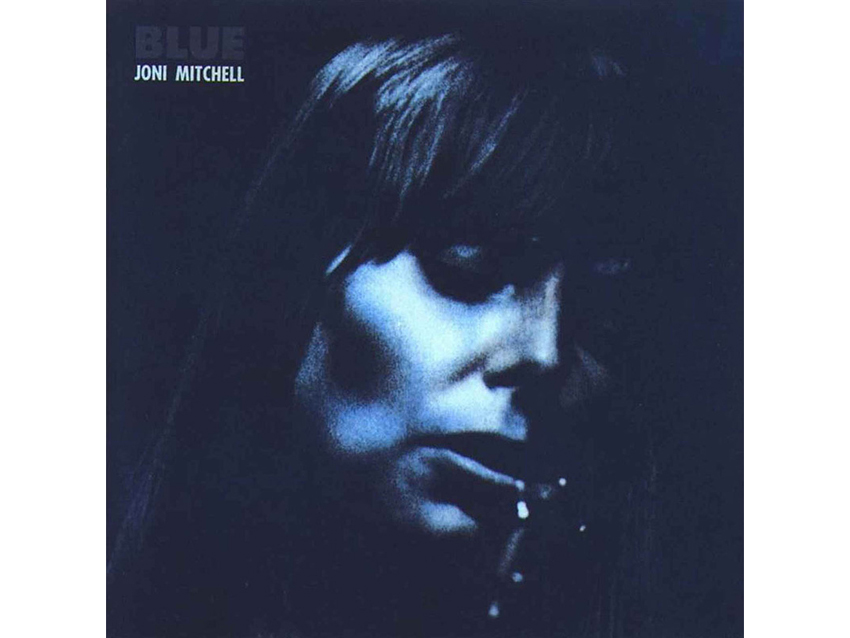
Joni Mitchell - Blue (1970)
“I picked this album because it was the first one that made me say, ‘Oh, yeah, girls can be kind of cool when they sing.’ [Laughs] As a boy, I would hear The Supremes on the radio, but there weren’t really other girls who I would listen to. So this one made me think, ‘Wow, she’s really good.’ And she was just so sexy and complicated.
“I mean this as a compliment, but it’s such a depressing record. It pulls you in. There was also something about her world that was so foreign to me – I hadn’t been to California yet. So I would think, ‘What is Laurel Canyon?’ ‘What is life out there like, with people putting roses in their hair?’ [Laughs] To a kid from Philly, it all seemed very exotic.”
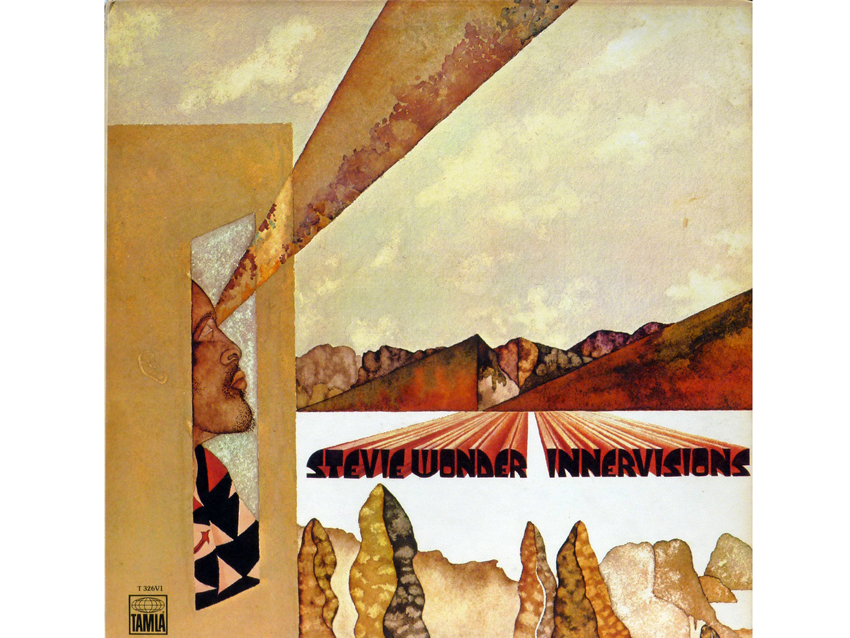
Stevie Wonder - Innervisions (1973)
“This was the time when I was discovering drugs, and to me, this is a very druggy record – not that it was Stevie’s intention, but that’s just where it landed in my life. I’m lucky enough to have gotten past that – so many people that I know didn’t – but it’s certainly something that I and a lot of people went through in the late ‘60s and early ‘70s. That’s what this album feels like to me.
“Stevie had a run that was just insane. Songs In The Key Of Life, Fulfillingnes’ First Finale, Talking Book – it’s really amazing what he put out. And this one, of course, is one of his best. And on a lot of that stuff, he played all the instruments. That's staggering to me.”
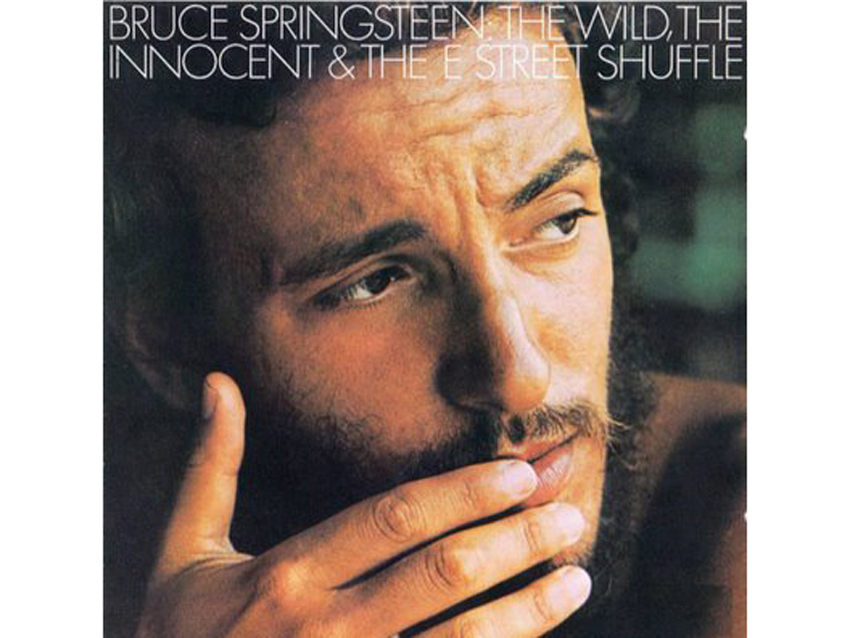
Bruce Springsteen - The Wild, The Innocent & The E Street Shuffle (1973)
“I hadn’t yet left for New York. At this time, with the first two Bruce records, he was big in Jersey and Philly, so we kind of thought of him as ours in a way. When Born To Run came out, it was like, ‘Oh, sure, now everybody likes him.’
“There was something I could relate to lyrically on this record. It felt like it was mine. He would write specific sorts of stories about these characters, and that’s something people don’t do so much anymore. They were theatrical in a way – cinematic. And you knew these characters, too. You could relate to them.
“It was kind of the opposite of James Taylor, who was more like, ‘This is what’s going on in my heart.’ Every song was going to be a little hint into who James was. Bruce’s thing was more along the lines of ‘I’m going to write about the people I know and love.’ That was his job, to bring those lives to the forefront.”
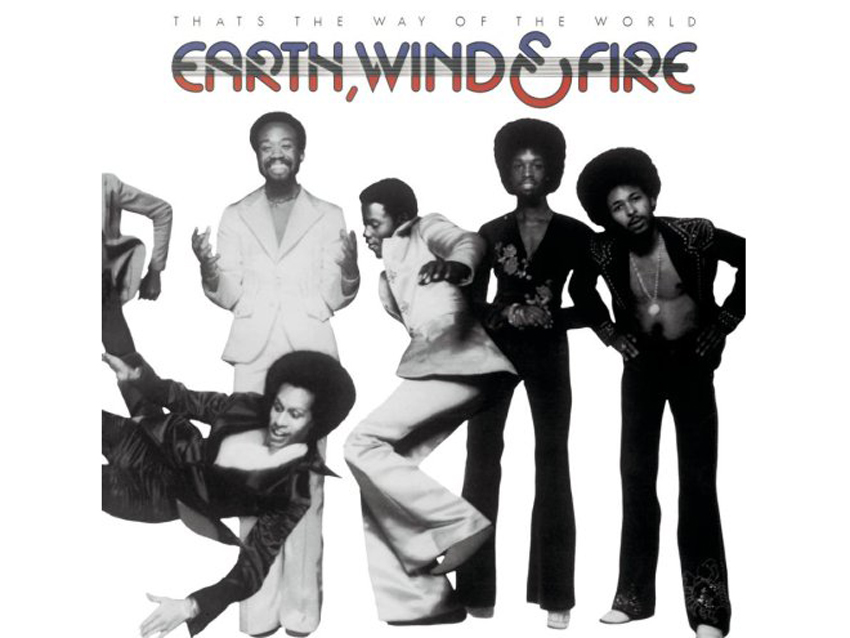
Earth, Wind & Fire - That's The Way Of The World (1975)
“I was about 16 or so, a time in my life where everything was kind of terrifying. I was going to skip college and go to New York to become an actor. I was working in a warehouse in Philly, and it felt like, ‘OK, here it comes’ – life, all the stuff that was in front of me.
“So here’s this optimistic, energetic record. There was a ‘you can do it’ feeling on the album that got me through a lot. Plus, it had so many great songs and funky grooves. The horns, basslines, vocals – whenever I listen to it, I think, ‘Yeah, this is good.’”
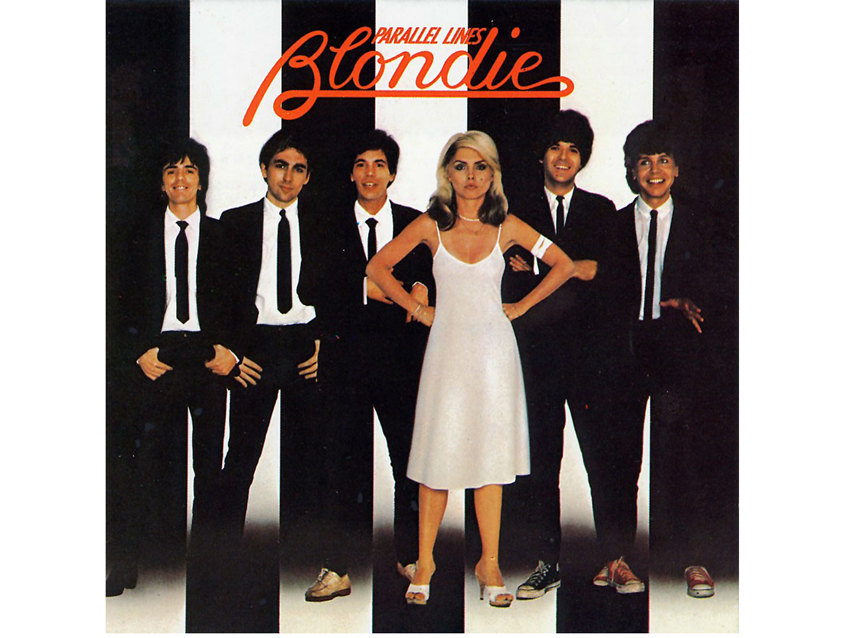
Blondie - Parallel Lines (1978)
“I moved to New York in ’76, and that time was a new chapter for me. I was starting a new career, running around and working in the bars. I liked disco music – I could do roller disco, and I went to Studio 54 and all that stuff – but there were no disco records that I was really into, not like full albums that I wanted to listen to. It was stuff that you used to party to.
“Parallel Lines was disco, but it was also punk-rock and edgy, and it felt like the New York streets. It reminds me so much of that time in my life. And Debbie Harry was just so sexy.” [Laughs]
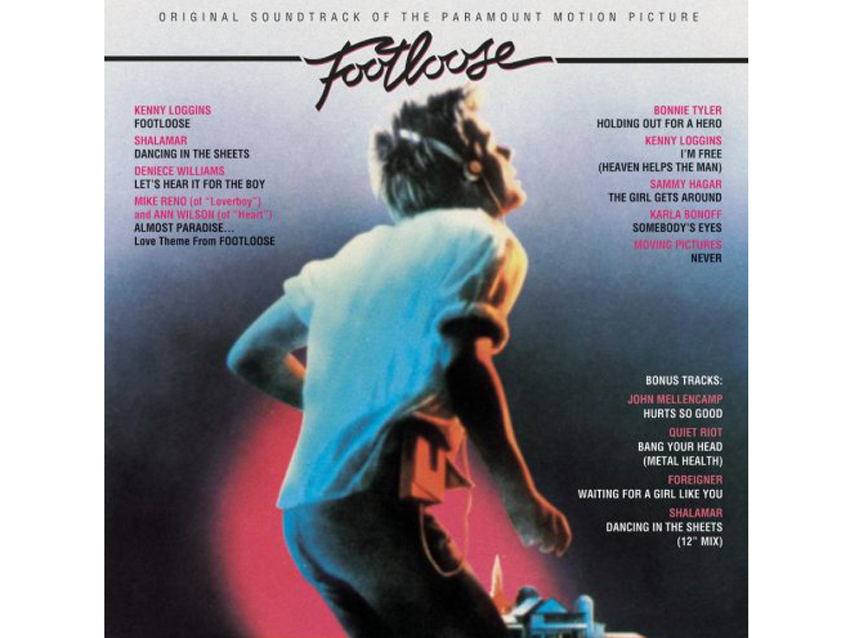
Original Soundtrack - Footloose (1984)
“OK, I hesitate to include it, but I have to be honest: If we’re talking about something that changed my life, this one truly did.
“What happened was, there was this crazy thing where the music was going to come out before the movie. They released singles and got them on the air – it was brilliant. It meant that when kids went to the theater to see the movie, the already had a connection to the tunes. I think that played a big part in how the movie became successful.
“The whole thing was a game-changer for me. It put me in a new position. For better or worse, I had a level of pop exposure that was new, different, frightening and challenging.
“For a while, when Michael and I put the band together, we used to play Footloose. I just said that we had to embrace the beast. [Laughs] We don’t do it anymore – we got a little tired of it, like anything else. But it was cool. People really liked it, even though it was done a little tongue-in-cheek.
“It’s a great record, though. I’ll never forget, when we were making the movie, we didn’t have the actual songs – they were still being recorded – so we would do the dance numbers to songs of similar tempos. While we were there, [screenwriter, songwriter] Dean Pitchford had gotten the demo of the song Footloose from Kenny Loggins. It was just Kenny singing and playing guitar – imagine it really pared down, and that’s what it was. Dean played it for me, and I thought to myself, ‘There’s no way that’s gonna be a hit.’” [Laughs]
Joe is a freelance journalist who has, over the past few decades, interviewed hundreds of guitarists for Guitar World, Guitar Player, MusicRadar and Classic Rock. He is also a former editor of Guitar World, contributing writer for Guitar Aficionado and VP of A&R for Island Records. He’s an enthusiastic guitarist, but he’s nowhere near the likes of the people he interviews. Surprisingly, his skills are more suited to the drums. If you need a drummer for your Beatles tribute band, look him up.
